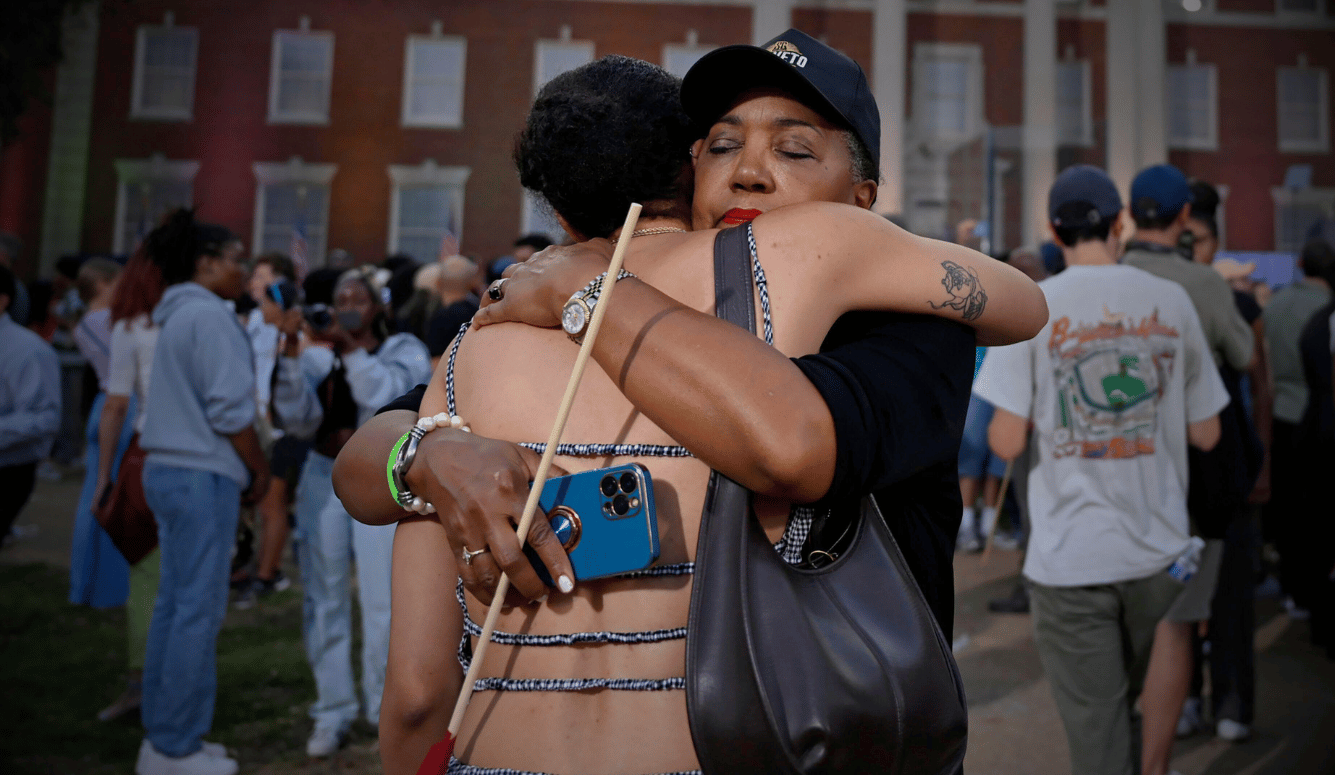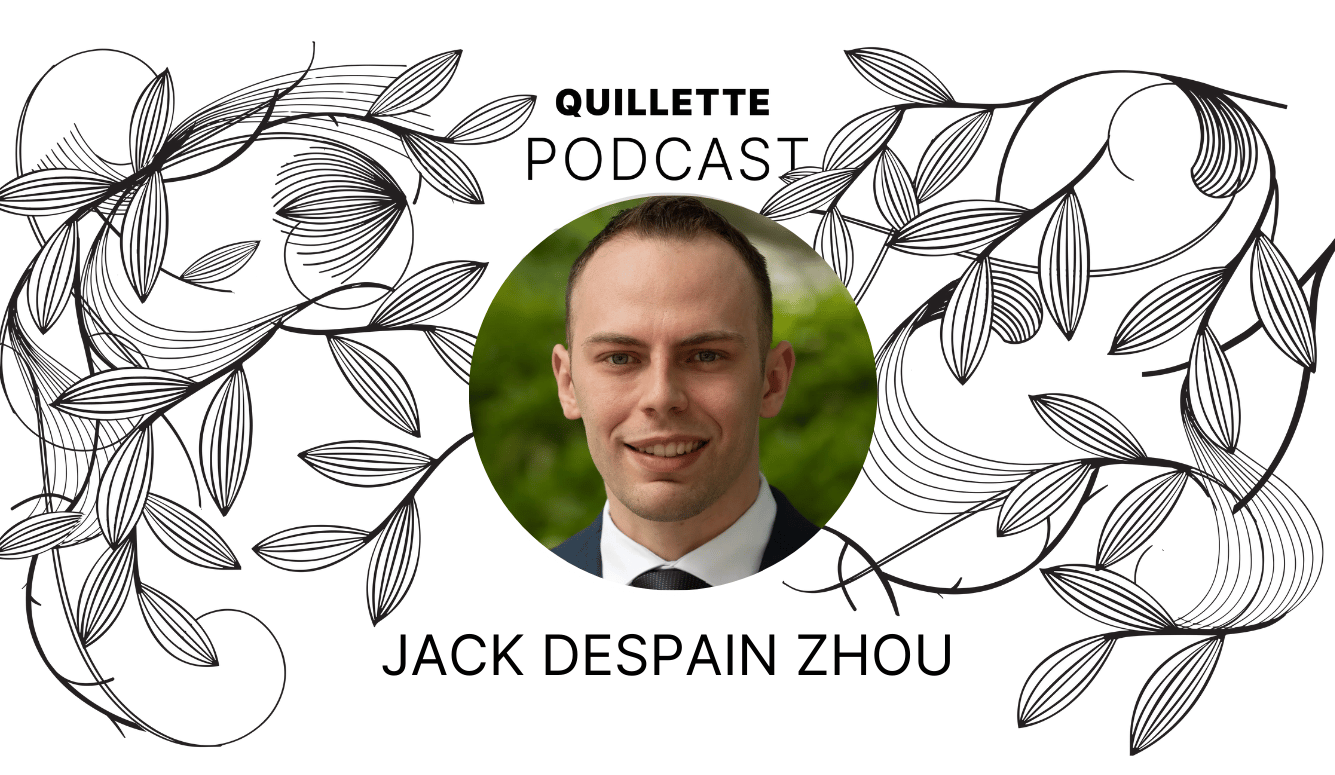US Politics
The Centre Must Rise
No centrist who understands the current moment has ever truly laid out their case to the Democratic Party base in the context of a serious political campaign. It’s time to change that.

For the near-term future, the Republican Party belongs to Donald Trump. Its internal power struggle is over. He has won. His platform has led the Republicans to their most resounding victory in decades. Everyone who initially opposed him has either submitted or left the party, and many who considered themselves politically homeless during the past few years have shrugged their shoulders and got on board as well, from Joe Rogan to Bret Weinstein and Batya Ungar-Sargon. The last few holdouts among Republicans are now as incongruous as anti-Obama Democrats: forgotten relics of a prior era.
Meanwhile, the Democratic Party belongs to nobody. The Biden presidency, rather than bringing the Trump era to an end, served as merely an ignominious middle, a whimpering final gasp of the Obama era. It ended in shame, as an aging president who had promised to be a “bridge” to a new generation instead clung to power until he could no longer maintain a facade of competence and collapsed on the debate stage. His inner circle conspired to conceal his decline, while the few independent thinkers who expressed concern about his age-related mental deterioration faced derision and scorn. His proposed successor ran her campaign on vibes. Hoping to be all things to all people, she backed away from her bold and unpopular progressive stances from four years before and dodged opportunities to make her case outside tightly scripted old media appearances. She failed. The Obama era is over.

We live in a time of institutional crisis. A decade of dire warnings from seemingly every institution in the country failed to stave Trump off. Trust in traditional media is at a record low, while a wild west of alternative and new media is flourishing. The new Republican Party understands this: Trump eschews old institutions and relies instead on a loose network of social media, podcasts, and alternative media platforms to make his case. The Democratic Party has barely begun to grapple with it.
Much of my own writing elsewhere focuses on grappling with this crisis: covering everything from a hiring scandal at the FAA to the damage ideologically motivated bad actors have done to Wikipedia and the ways academics lie and how that damages public trust. As a result, I have had conversations with many on the new Right and many on the politically disorganised and disillusioned centre and “heterodox” Left, but with vanishingly few people on the institutional and progressive Left. To hear the latter camp tell it, institutional criticism is synonymous with conspiracism, disinformation, and the “alt-right pipeline.”

The tragedy—and the opportunity—for the Democrats is that many of the earliest and most perceptive commentators on the crisis were not right-wingers, but left-leaning people who faced scorn and exclusion for not hewing to institutional progressivism: Scott Alexander, Sam Harris, Carole Hooven, my former employers Jesse Singal and Katie Herzog, and many more.
The Republicans have grappled with the institutional crisis, but their solution so far has mostly been to build worse institutions: more openly partisan, more sensational, more conspiratorial, and less committed to truth than mainstream ones, even as mainstream institutions have fallen victim to capture and have declined.
The Democrats have not begun to grapple with it. They are the party of defending the institutions: Trust the experts, trust the science, trust the government, trust that everything is functioning well and that adults are in charge and that any criticism is all smoke and no fire. This election, that refusal to grapple with the crisis culminated in their worst electoral loss in decades.
Sam Kriss recently published an election retrospective that provided a fascinating mirror of my own frustration with Kamala Harris, but from a left-wing perspective. One thing stuck out to me, though: his description of Harris as being from “the right wing of the [Democratic] party.” To describe an individual who has one of the furthest-left records of any senator as representing “the right wing of the party” is absurd on its face. As I argue elsewhere, Kamala Harris did not represent the centre.

But Kriss’s view nevertheless reveals an important truth: even though leftists do terribly in electoral positions and field a tiny number of representatives and senators, they represent a major part of the coalition of young, educated professionals who form the most politically active part of the Democratic base. How does this play out in practice? Most of the ideas come from the Left. Most of the enthusiasm comes from the Left. Most of the cultural shaping comes from the Left.
In the 2020 Democratic Party primary, virtually every candidate pandered to the Left. The one who did so the least won, because the Left does not represent the electorate, but then he filled his staff positions and his agenda with precisely the same people and ideas that leftists had been pushing anyway.

About Kamala Harris, Kriss and I agree on a great deal: she is a politician with no ideas and nothing but vibes propelling her, a charismatic schmoozer and climber who wants power without any real aims for it, a well-functioning part of a well-functioning machine. But the machine shattered. Don’t get me wrong: it still controls the professional class, still sets the tone in academia and old media and other vital societal institutions. But its lack of vision was overwhelmingly rejected by voters. Leftists say—and I agree—that Harris failed to offer enough substance to the voters. Warmed-over leftovers of firebrand leftism, sanewashed and smoothed over to appeal to the general public, didn’t quite cut it. So, what’s the solution?
Many people have been alienated by socialism, progressive orthodoxy, and Trumpism alike. These people are a disorganised group, many of whom are unused to politics, and they are united more by what they hate than by what they like. For a long while, many of the people who form part of this group were primarily worried about securing the principled right to free expression, while it was most under threat. For all intents and purposes, though, in the United States, free expression—or at least expression free from progressive coercion—has now won. Substack has enabled a generation of independent writers. Elon’s X has its flaws, but being a progressive monoculture is not one of them. Deplatforming failed so spectacularly that Trump went from being banned from all social media platforms simultaneously to controlling all branches of government.
In this new environment, there’s an undercurrent of excitement and creativity. I saw it at the prediction market conference Manifest this year, I see it in the work the Progress Studies people are doing, I see it in the X and Substack communities I spend my time in, I see it at outlets like Quillette. There are smart, capable people who feel left out of the political landscape as it stands, and who are astute critics and observers of the institutional crisis.
Criticism is all well and good, but at some point you have to build something. Matt Yglesias’s principles for Common Sense Democrats provide a good starting place, but I think more can be done. The progress studies vision of “techno-humanism” with its conviction that science, technology, and industry are key to human flourishing speaks to me. So does the pursuit of excellence and a return to serious efforts to educate talented children. We also need to promote pro-human environmentalism over cynical leftism, champion the role of America as a melting pot for the best and brightest from around the world, and grapple with the transformative role and threat of artificial intelligence. Institutions matter—the mantra “tear them all down” cannot and must not be seen as the solution to the institutional crisis. The interests of minority groups matter and should be defended and considered alongside the interests of majorities, but the oppressor/oppressed framework is a dead end and people must ultimately be treated as individuals. A muscular centrism can and should champion causes like these while also following Yglesias’s edict to “reclaim normal ideas from being the exclusive property of right-wing edgelords.”

This election cycle had a winnowing effect. Previously, progressives treated those who refused to endorse either party as presumptively in the pocket of Donald Trump. Now, as if a wall had broken down, half the people in the “heterodox” space have shrugged and turned to Trump, seeing no future with the Democrats and wanting real political influence. The other half—the ones who really meant it when they rejected both the dead-end road of a progressive monoculture in thrall to social justice ideology and the perils of right-wing populism—are now demonstrably left of centre in the American political landscape, and progressives who want to treat them like Nazis in waiting can and should simply be brushed aside. If you do not want to follow Trump and you want any hope of political influence in the United States, there is one option and one option only: the Democratic Party.
The Democratic Party is in disarray. Leftists have been rejected again and again at the ballot box. In 2020, Andrew Yang, a political outsider, was the only vaguely centrist candidate presenting a fresh, positive vision in the Democratic Party primaries. His inexperience showed and he never had a real shot at winning—but he demonstrated the potential that such ideas have. That could happen again.
For too long, leftists have assumed that politicians like Joe Biden and Kamala Harris represent the centre, even as those same politicians do little but follow the lead of their progressive staffers when it comes to ideas. And, really, who can blame them? No centrist who understands the current moment has ever truly laid out their case to the Democratic Party base in the context of a serious political campaign. The 2028 debates cannot be like 2020. Centrists need unapologetic champions prepared to make their case to the Democratic Party base, and they need to start preparing now.
Political parties are not static entities. They are machines designed for the purpose of securing votes, and they will and must adapt to whoever can get them those votes. There is no better time than now, while the party is at its lowest point in decades, for fresh ideas to take hold. Now is the time to organise, to come up with a serious list of principles and priorities, to build a clear vision for the future. Now is the time to seriously examine what a Democratic Party that properly grapples with the institutional crisis might look like. Now is the time, in short, for the disillusioned centre to do something more than complain. The next four years might belong to Trump, but after that? It’s anyone’s game.






